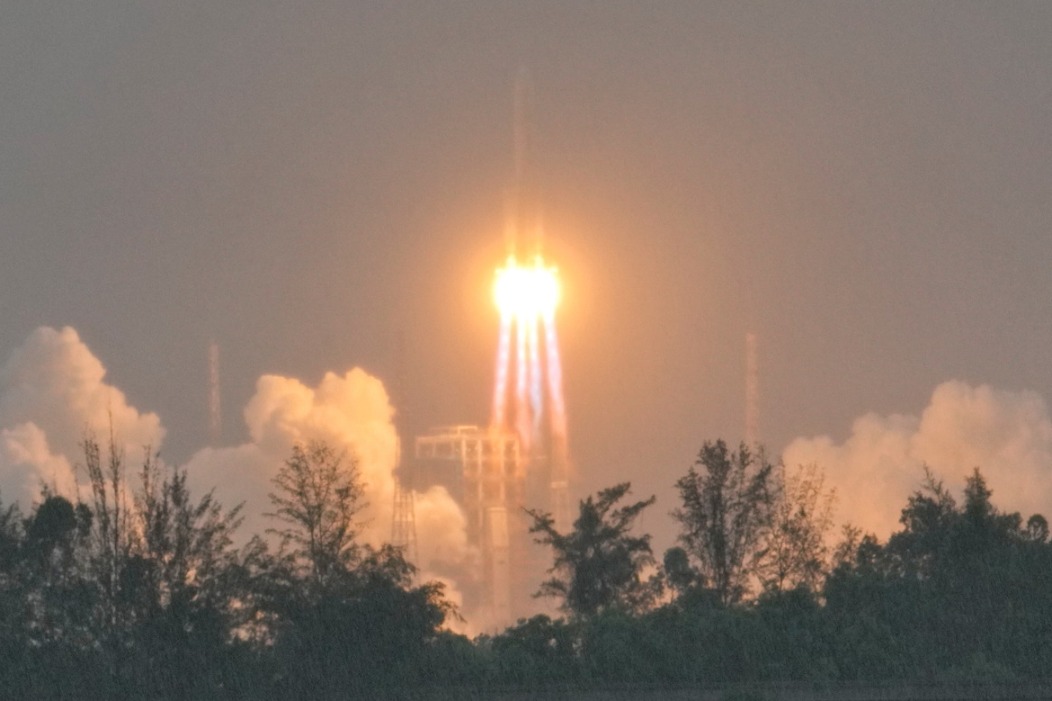Driverless tractors, farmerless farms: China explores precision agriculture
Xinhua | Updated: 2019-03-29 11:04
Using BDS, the self-driving system developed by Unistrong is accurate to within 2.5 cm, raising the ground utilization rate by 3 percent. "It sounds small, but for large farms in Xinjiang, it adds up to a lot," said Nan Shunxian, general manager of the Precision Agriculture Center at Unistrong.
Last week, two Earth observation satellites of China's Gaofen project were put into service after completing in-orbit tests. Gaofen-6, launched in June last year, can provide data on agricultural disasters and estimate crop yields.
Sensors and drones generate and collect data like soil moisture, pests and weeds. The high-speed connectivity of 5G enables farm machines to communicate with each other and operate in real-time, so operators can respond to emergencies quickly.
Shen said self-driving tractors and combines still need people to supervise. In the next stage, a drone will first make a detailed survey of the fields. Then an operator can plan and adjust paths, and even manage multiple tractors running at the same time around the clock.
With all that data, farmers in the future will need less expertise and experience, said Shen. They will be operators and managers. All the work will be automated with the best plans designed by artificial intelligence.
Last June, self-driving machines completed the largest farm automation trial in China so far with a rice crop on a farm in Xinghua.
The Telematics Industry Application Alliance was a major organizer of the trial. Pang Chunlin, secretary-general of the group, said one of the major goals this year is to achieve 24-hour operations on the Xinghua farm.
TIAA and its partners will launch another two trials in Heilongjiang and Chongqing, in order to get more experience of automated farming on different terrain and soil types.
In the last harvest season, the trial in Xinghua had its first setback. The soil was seriously compacted after several rainy days, which made it difficult for the self-driving tractors to move. "The tractors just stubbornly tried harder and several engines broke down," said Pang.
Such frustration is normal on the road to automation, he said. China needs to explore automated farming in steps. The trial drew wide support from local governments, tractor makers and research institutions, and it is expected to wrap up successfully in 2025.
























